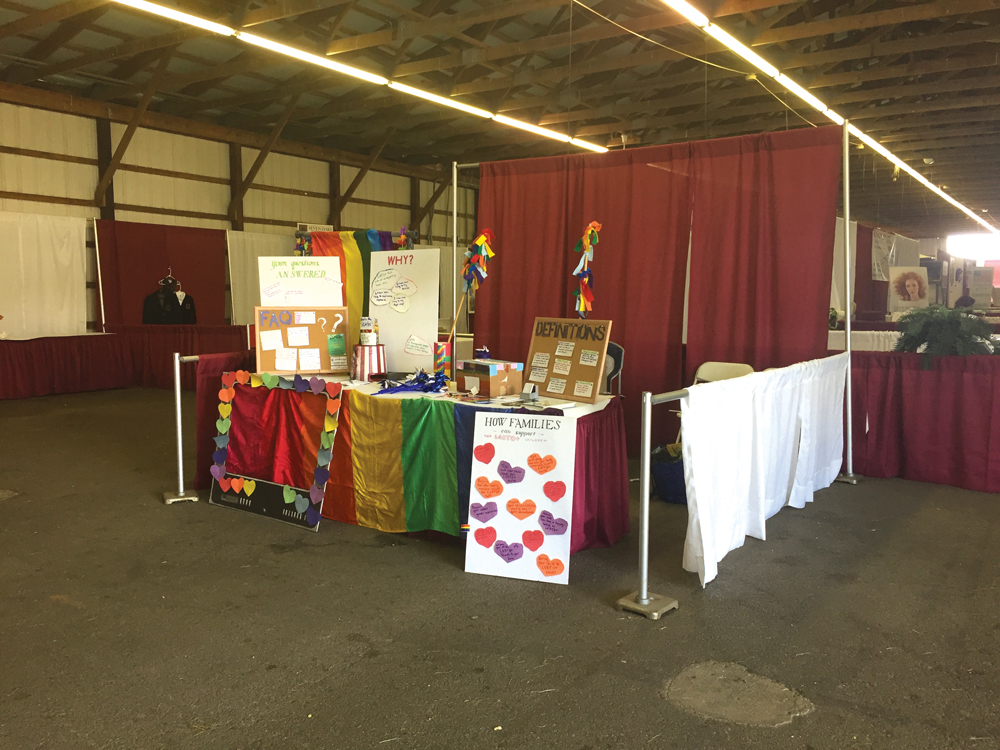
Prism and the Rainbow Rights Task Force will have a booth like this at the Monroe County Fair again this year. Courtesy photo
See related: “How Hate and Divisiveness Spread on the Internet“
BY CRAIG COLEY
Vandals scrawled anti-gay insults on their booth. Parents pulled children away from their rainbow stickers. A woman told them they were all going to hell. But they returned to the Monroe County Fair the next summer, and the next, and will be there again this year, from June 30 to July 8.
Prism Youth Community—the Bloomington PRIDE program for young people—along with the Rainbow Rights Task Force of the Unitarian Universalist Church of Bloomington, sets up its informational booth in the county fair’s commercial tent. Alongside businesses and organizations distributing promotional swag, Prism volunteers offer rainbow-colored Mardi Gras beads and stickers. Their displays define terms such as transgender and cisgender, and offer ways families can support their LGBTQ+ children.
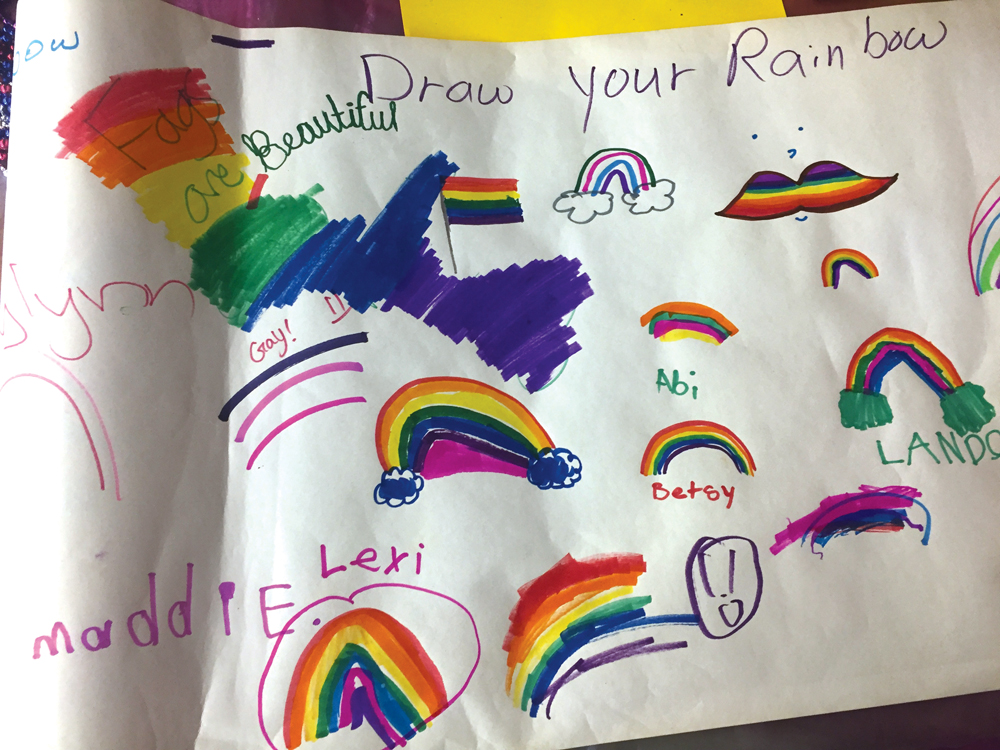
Messages, negative and positive, are left by visitors to the Prism booth.
The organizers knew being at the Monroe County Fair wouldn’t be like having a booth at Bloomington Pridefest—and that was the point. “We’re talking to each other all the time, but we’re not talking to people who disagree with us,” says Amy Makice of the Rainbow Rights Task Force, whose son Carter is active in Prism.
Their objectives are both modest and monumental. “The goal of the booth is just to be there,” says Carter Makice, who was 15 the first year Prism was at the fair. He’s 18 now, and recently graduated from Bloomington High School South. “The first step to helping people see the humanity in the queer community is for them to just see the people who represent that community. Even if their first reactions are hurtful, I see that as part of a path.”
The booth also supports LGBTQ+ people at the fair. “The benefit is to have a broader reach and perhaps reach new people who don’t know about Prism,” says Laura Alford, Prism’s program director. Amy Makice relates the story of a young visitor who wasn’t out to their family and they didn’t have a place they could be themselves. “They took the tiniest rainbow sticker that we had and said they could put it inside a folder where nobody would see it,” she says. “They come every year. I know it’s important to them that we’re there.”
Amy Makice says more people are supportive than not, but that, “the other ones are louder.” She says it’s stressful to be in that situation. “You have an awareness that people have a level of distaste for you,” she says.
That’s why Prism youth haven’t been present at the booth since the first year. “This is a role for allies,” says Phil Cooper, 67, a member of the Rainbow Rights Task Force. “We don’t need to be putting young people in a position where they are traumatized.”
But the Prism Youth Community is very involved, creating materials and training volunteers. Carter Makice says they stress an empathetic approach called cultural-relational theory. “I tell the trainees the goal is expanding people’s worldview rather than contradicting it,” Carter says. “We’re going out into that space without the expectation of changing anyone or convincing anyone of anything.”
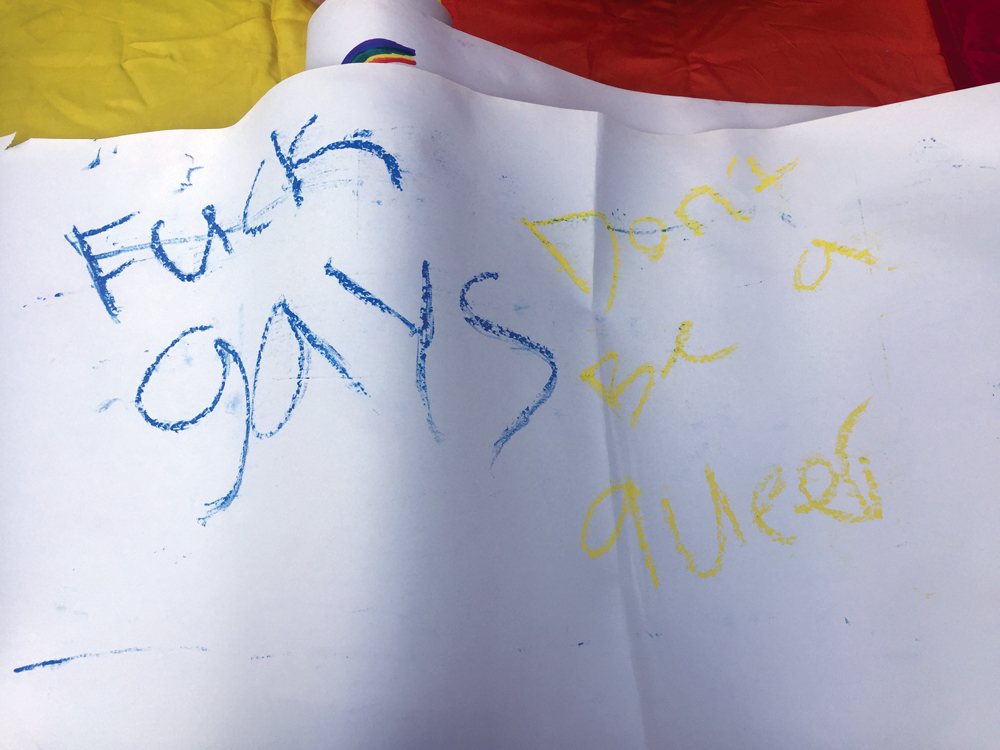
Messages, negative and positive, are left by visitors to the Prism booth.
Amy Makice says the non-confrontational approach creates a space where people can connect and sometimes change. She offers the example of a man who asked what kind of questions people put in the booth’s question box. “I said, ‘That’s just a container for hate. People write hateful messages there and then they don’t write them on our booth.’ The man began to tear up, and he said, ‘I’m a white, male evangelical. I don’t think I can get to where I think this is right, but you shouldn’t be exposed to hate, and I am so sorry.’ He didn’t get all the way to where we were, but he was able to soften enough to be with us at that moment.”
Volunteers have their prejudices challenged, as well. Prism’s booth was placed next to that of the Republican party one year, and the Democratic party the next; the Republicans shared their water, but the Democrats did not. The woman who told them they were going to hell that first year? She had purple hair.
“There are all kinds of people,” Amy Makice says. “There are pig farmers in cowboy hats and shitkicker boots who are also really excited about gay rights—and who also enjoy their country music and the things that Bloomington-bubble people make fun of.”
For more information, contact Amy Makice at [email protected].


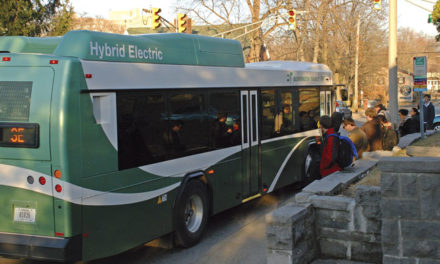
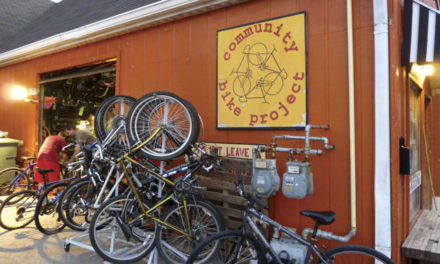
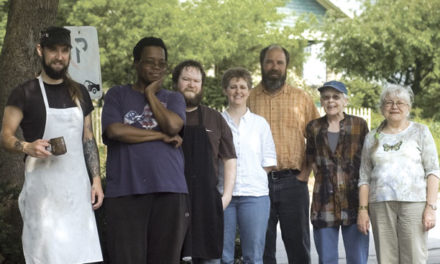
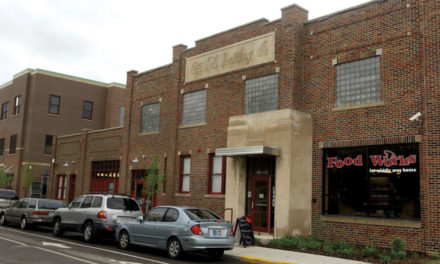


Trackbacks/Pingbacks